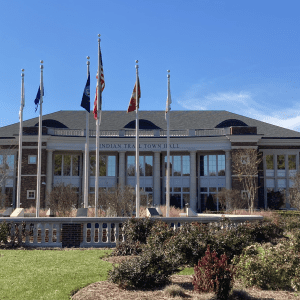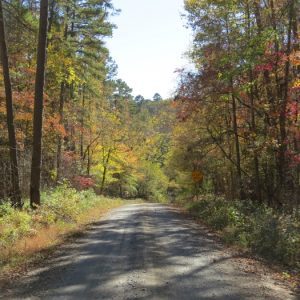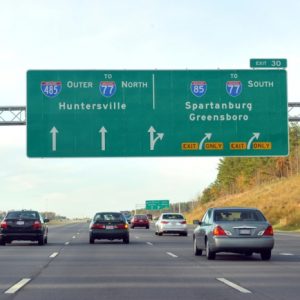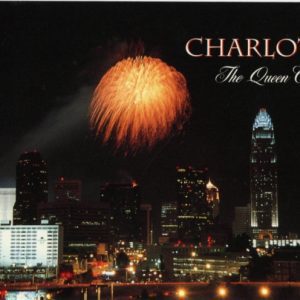Regionalism

When it comes to transit, everyone wants ‘regionalism.’ But no one’s quite sure how to get there.
There’s consensus in the new crop of local transportation plans: Whether we’re talking about trains, buses or roads, we’ll have to cross county borders and state lines to fund and operate an effective transit system. But in the traditionally siloed Charlotte region, how do we actually create some kind of regional entity — and who […]

Charlotte’s new focus on regionalism in transit brings more people to the table, but can they all agree on a vision?
If all the pieces fall into place, some day in the future a new light rail train will pull out of the station at the Central Piedmont Community College Levine Campus in Matthews and head south into Union County. It will turn down a two-lane country road lined with pine trees; run alongside U.S. 74, […]

Does regionalism still make sense in the era of the ‘Nation City’?
This is the first in a series of articles that will periodically explore regionalism, interconnectedness and other issues examined in the institute’s Carolinas Urban-Rural Connection report, published in fall 2019. We are living in the age of the “metropolitan revolution” in the U.S.: the city as the crucible of change in the wake of waning […]

Recreation as economic development: Lessons from two approaches
Rural communities around Charlotte are looking for new economic engines. Urban residents are looking for more outdoor recreation. That provides an opportunity for communities around Charlotte to use their public lands and waterways to fuel growth. And two areas in the region that were ahead of the curve offer lessons for other communities trying to […]

A changing landscape: Who are the Uwharries for?
In the years after World War II, my dad could roam the Uwharries with his .22 and his trusty squirrel dog, a feist named Spot. A boy didn’t have to worry about trespassing on a neighbor’s property; he only had to avoid the occasional moonshine still. Deer and turkey were virtually extirpated in the region, […]

Rebuilding the Carolinas Urban-Rural Connection: Where do we go from here?
Bill Graves and Jeff Michael served as co-principal investigators for the Carolinas Urban-Rural Connection project. Dr. Graves is Associate Professor and a J.H. Biggs Faculty Fellow in the UNC Charlotte Department of Geography & Earth Sciences. Michael is Director of the UNC Charlotte Urban Institute. Two years ago, we set off on a journey to […]
There’s a housing affordability crisis in rural areas, too
Charlotte has struggled with housing affordability in recent years, as the city faces rising rents and home prices driven by rapid growth and low supply. But urban areas are not the only places grappling with these challenges, even though affordable housing is typically seen as an urban problem. Rural areas in the Carolinas Urban-Rural Connection […]

A border problem? Unexpected ways the state line influences our behavior
We don’t often think about crossing state lines. Other than changes in gas prices or the availability of fireworks, there’s little visible difference as you cross from North Carolina into South Carolina, or vice versa. This similarity was one of the fundamental assumptions of our Carolinas Urban-Rural Connection project – we expected our 32-county region […]

The changing economic development landscape
“Regionalism” has become something of a public policy bromide these days — an unwritten assumption that informs the planning, economic and growth decisions that supersede any one political jurisdiction. But what is easy to say can be hard to do. For the Carolinas Urban-Rural Connection project, a two-year effort to understand the distinct ways Charlotte […]

Banks? NASCAR? Food? How branding aims to find the Charlotte region’s identity
From basketball to banks, Charlotte’s got a lot (as the slogan goes). But critics say one thing is missing: an actual brand. Compared to iconic city identities such as Nashville’s “Music City” and even Rockland, Maine’s claim to fame as the “lobster capital of the world,” Charlotte seems to lack one defining characteristic that sets […]